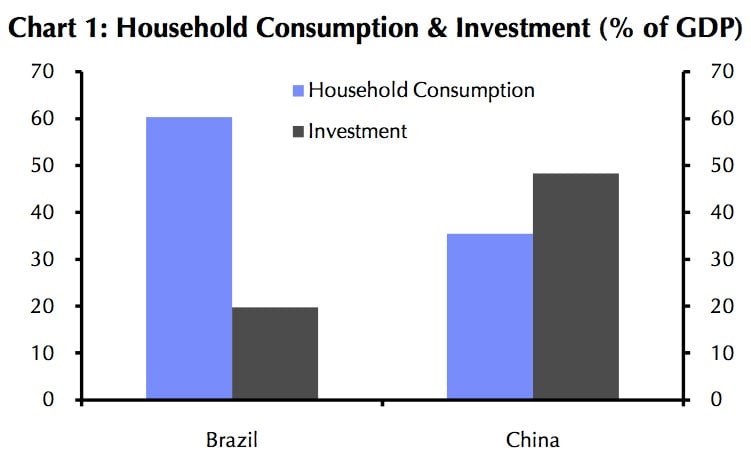China and Brazil, both running out of steam, need to trade economic models—like a house swap
You know how it is. You have fallen victim to the global recession. You sense you will be poorer next year than you are now. So holidays are out. But what about a house swap with a friend far away? You can live their lives for a while, and get some new ideas about how to change your own.

You know how it is. You have fallen victim to the global recession. You sense you will be poorer next year than you are now. So holidays are out. But what about a house swap with a friend far away? You can live their lives for a while, and get some new ideas about how to change your own.
That is exactly what Brazil and China need to do, according to London-based consultancy Capital Economics. As chief emerging-markets economist Neil Shearing explains in a note, Brazil’s economy is too dependent on domestic consumption, while China is hooked on fixed asset investment to boost GDP and keep employment high.
The answer? Of course. A swap. “China must become more like Brazil and Brazil must become more like China,” Shearing writes. “Both economies are reaching the limits of their respective growth models”. And in fact, they are—as the chart above shows—almost exact economic opposites.
China just keeps planning and buiding new airports. Brazil relies on low borrowing costs to keep its people spending, meaning it has a bubbly housing market and skyrocketing food prices while taxis in São Paulo can cost more than New York cabs.
Shearing stops short of suggesting exactly how these huge economies will rebalance themselves. But a series of house swaps between both nations’ economic planners could be a good start.